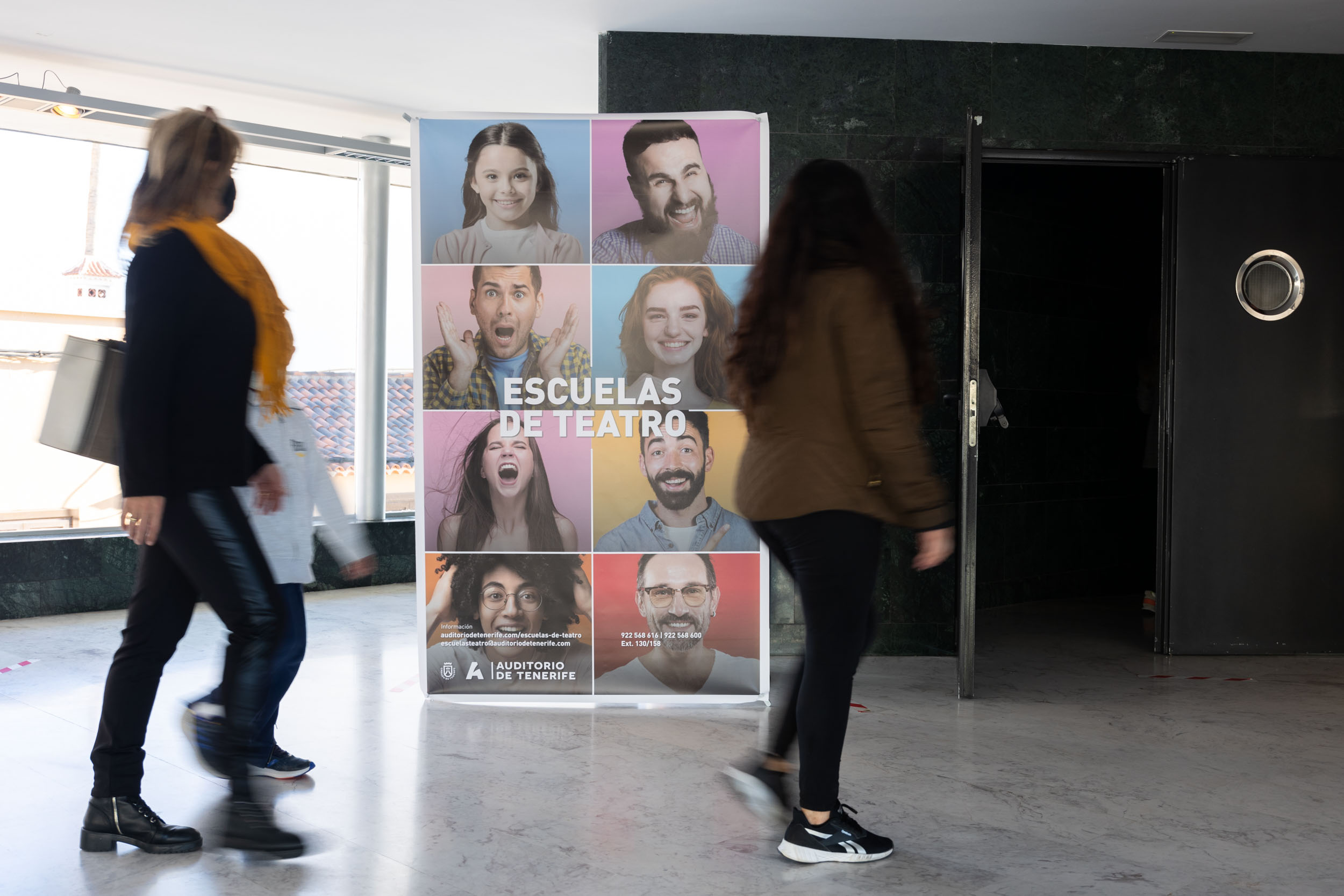Theatre Schools end enrolment period on 30 September

The activity, which is taking place in eleven municipalities, will begin in October and run until June
The Theatre Schools programme (Escuelas de Teatro) of the Auditorio de Tenerife, a cultural space linked to the Department of Culture of Tenerife Island Council that is managed by the island's Minister of Culture Enrique Arriaga, is ending the enrolment period for the 2022-2023 year on 30 September. The municipalities participating in this programme are Adeje, Arona, Candelaria, El Rosario, El Sauzal, Granadilla de Abona, Guía de Isora, La Laguna, La Orotava, Santa Úrsula and Tegueste.
For this school year, there are four offers according to the student's ages: Groups A (from 7 to 11 years of age), Groups B (from 12 to 14 years of age), Groups C (from 15 to 17 years of age) and Groups D (over 18 years). The subjects taught, with a fun methodology, are Bodily expression, Oral expression, History of theatre, Stage performance and practice. All activities will be carried out in groups with a maximum of 15 pupils, from Monday to Friday in the afternoon and will begin in the first week of October.
The Learning and Social Programme of Auditorio de Tenerife offers theatre courses that are held in collaboration with the island's municipalities. They take place in educational and cultural centres during the school year and offer theatrical training to children, youth and adults. The aim is to foster a quality artistic hobby and to contribute to the cultural development of the social environment. All teachers have a degree in performing arts by the school of performing arts of the Canary Islands (Escuela de Actores de Canarias).
To register in one of the theatre schools of the island network it is not necessary to have any prior knowledge or special skills and it can be done through the website https://auditoriodetenerife.com/en/learning-and-social-programme/theatre-schools.
Theatre is important to contributing to the cultural identity of a community, it nurtures expressive values for interpersonal relations and encourages social participation. Likewise, it provides resources and tools that are useful for coping with real life (overcoming shyness, the ability to talk in public, assimilation of the feeling of a social role...). Theatre also boosts social skills that are acquired with group work, such as cooperation, tolerance, responsibility, respect and solidarity.


